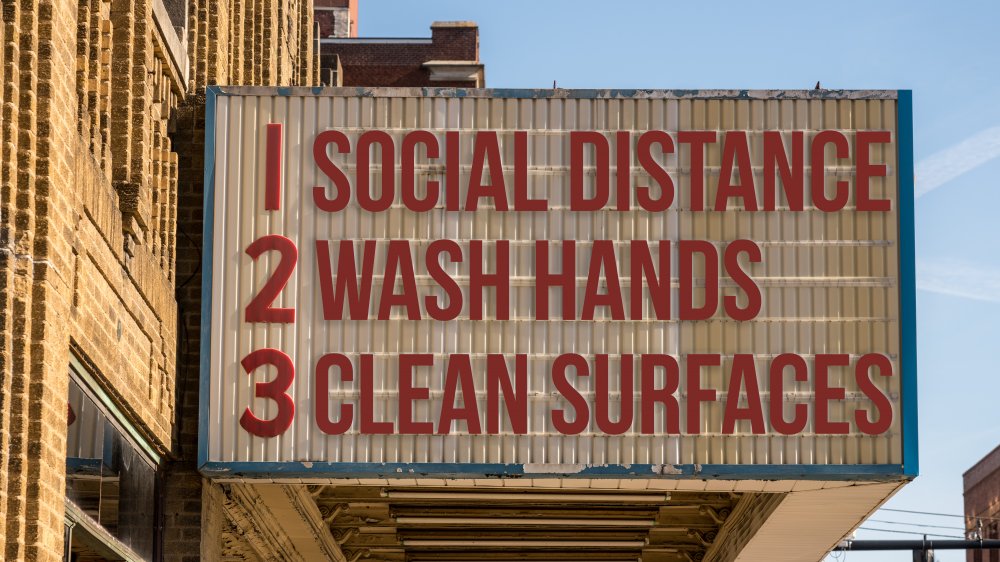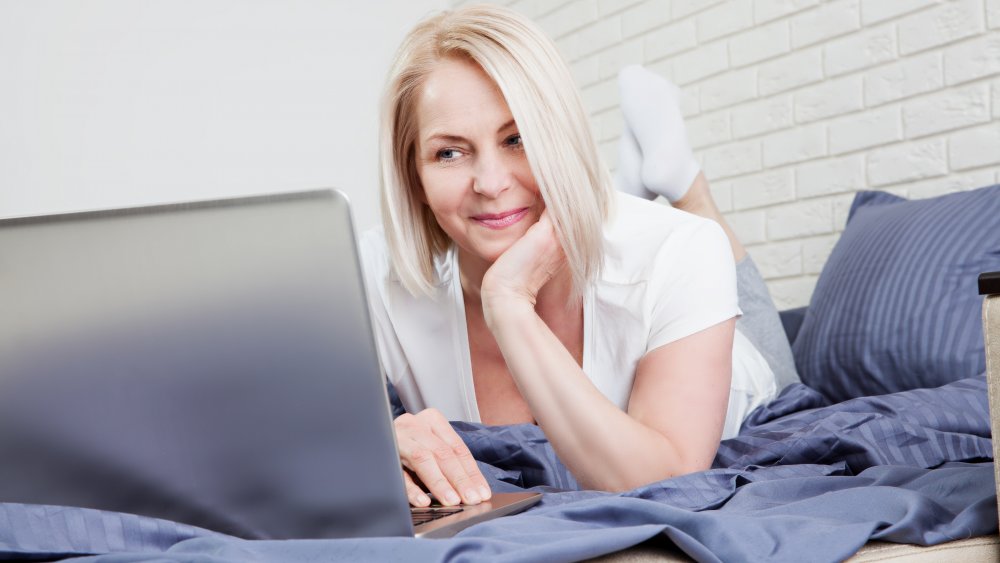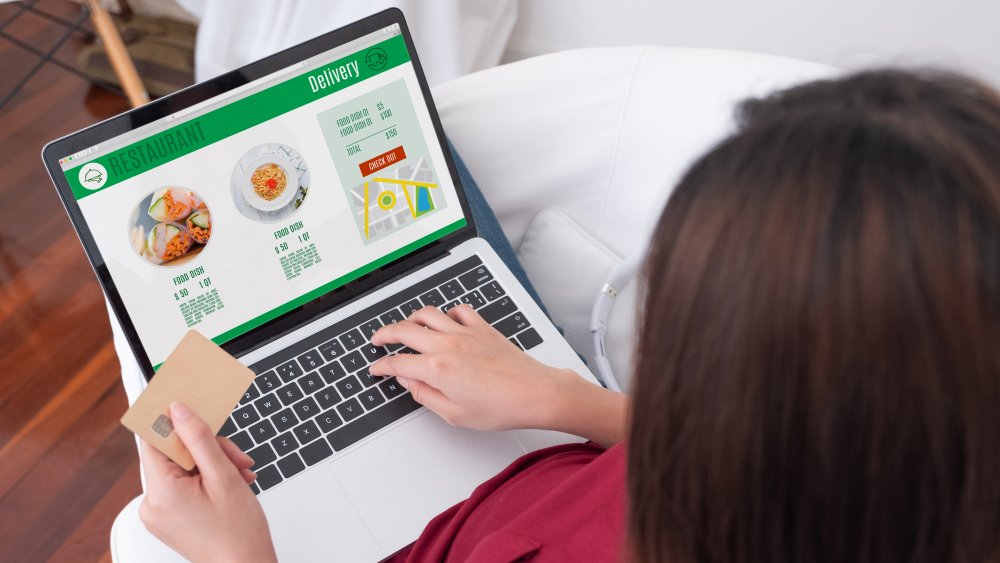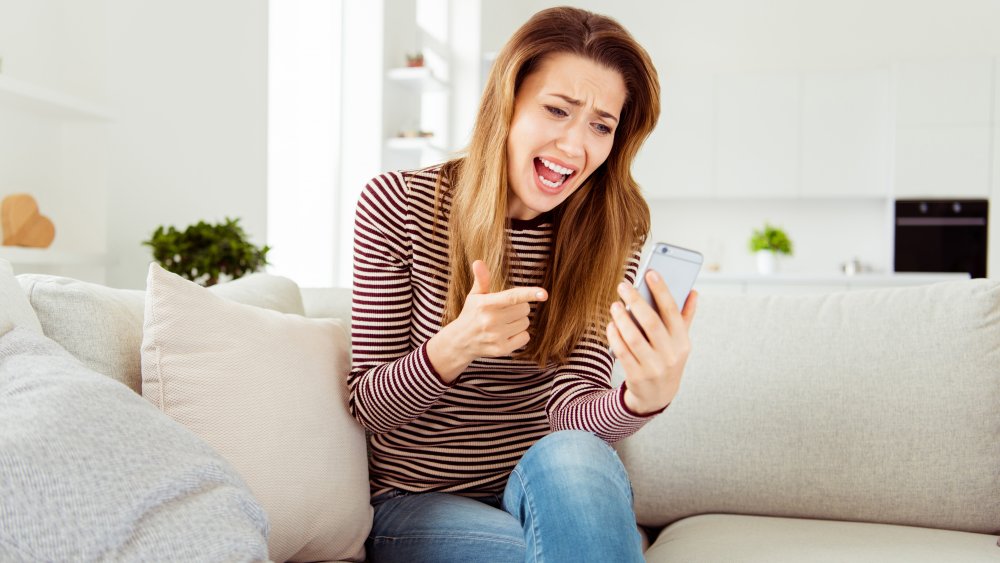What It Really Means To Practice Social Distancing
We've heard the words "social distancing" tossed around quite a bit these last few weeks as every single newscast seems to lead off with the steady march of how to prepare for the coronavirus. What, exactly, does social distancing mean, though? Locking yourself in your room and never coming out? No, there's another term for that: self-quarantine. This is something you should do if you're actually sick, or if there's a possibility that you might have been infected. Social distancing, however, is for the rest of us. According to The New York Times, the "distancing" part of social distancing is meant literally. They define the term as "measures that are taken to increase the physical space between people to slow the spread of the virus," and clarify that the recommended distance is at least six feet.
How can we manage to maintain such a distance, however, as we go about our daily business? Ah, there's the problem, since you never quite realize what a crowded world we're living in until you try to maintain that six-foot personal space bubble and find out how much of a challenge that can be.
Social distancing and your work life
If you can work from home, you should obviously do so, and at this time even employers that were previously resistant to the idea of allowing workers to telecommute may be willing to give it another go. Obviously, though, not all jobs will lend themselves to remote work. If you have a job that brings you into contact with a large number of people — perhaps you're a teacher, or you work in the food service industry or in retail — you will need to take extra care to wash your hands as often as possible (still the best, if simplest, defense against the virus) and stock up on the right cleaning products.
Commuting to work also poses problems when it comes to keeping your distance. If you're driving your own car, you should be okay, and even making use of ride-sharing services will at least limit the number of people with whom you come into contact. If you absolutely must take public transportation, though, well, good luck. And try to see if you can ride at off-peak hours, if at all possible.
Social distancing and life's little necessities
No matter how much you may want to stay home and hide under the covers, at some point you're going to run out of food. Luckily, we live in an age where grocery and food delivery services are expanding to cover more areas than ever before. As long as we're under threat of coronavirus, many food delivery services are even offering "contact-free" delivery options. Going out to an actual restaurant is kind of iffy, though — unless you live in NYC, in which case mayor Bill de Blasio claims (via New York Eater) that it's practically your patriotic duty to keep dining out in order to stimulate the economy, virus be damned. (Keep in mind, though, that de Blasio also eats pizza with a knife and fork, so you might want to take what he says with a pinch of garlic powder.)
Working out at the gym is another grey area, so if you were looking for an excuse to be lazy, you're in luck! If you actually enjoy working out, though, you should try to go to the gym at a less crowded time — or you could always exercise at home, you know. If you absolutely must have an audience to admire your sets and reps or whatever it is that you're doing, you could always livestream your workout on Facebook. After all, social media puts the "social" back in social distancing.
Social distancing and your social life
At last, there's finally some benefit to being an introvert! For those of us already practicing the hikikomori lifestyle (via Psychology Today), social distancing = pretty much life as usual. For those of you new to the ranks, well, you'll be spending a lot more time hanging out in your room, and your social life will be conducted almost entirely online. Scientific American suggests that video chats are the best substitute for actual face-to-face interaction if you're having to gradually wean yourself off actual human contact. In time, though, you may grow used to interacting with strangers through comment fields and Reddit threads.
As far as your actual loved ones go, you've already shared the germs of anyone living in your house, so carry on as usual (with the added bonus of stir-craziness and cabin fever, if you're not used to so much togetherness). If you're still in the dating phase with someone and have yet to progress to moving in together, two out of three health experts interviewed by The Atlantic suggest that if you know each other well enough to be reasonably sure your partner's virus-free, it's okay to keep on seeing them, though you should avoid going out to public gatherings. Netflix and... whatever... should still be okay, though. Oh, that third expert interviewed? They were more cynical, suggesting you and your partner "get creative" with text messages, FaceTime, or phone calls. (How creative, we'd really rather not know. TMI!)



